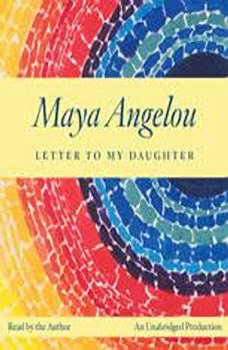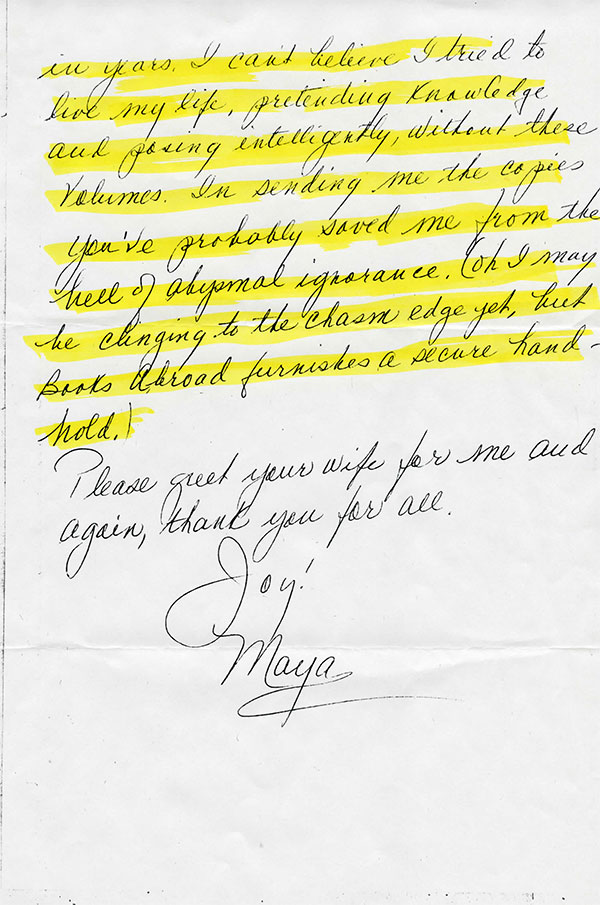

Over the course of Letter, Angelou also shares her opinion on violence and vulgarity, her successful relationships along with her failed ones, and her struggles with mental health. Angelou ushers in a new generation of students, equipping them with the vocabulary and awareness to communicate effectively and begin healing the racial divide. Angelou also recalls the time she facilitated conversation between white and Black students at the recently desegregated Wake Forest University. Afraid of what she might say, Angelou muttered a few words and hurried off the stage. Upon taking the stage, Angelou forgot her speech entirely and was instead filled with anger.

As she sat, surrounded by the people who shaped her views on romance and dignity, memories of the segregated movie house in Arkansas filled her mind. She details an evening at the American Film Institute when she was asked to give an introductory speech. Her mother’s kind words persuaded Angelou that she could make something of her life.Īngelou chronicles the way racism impacted her budding career. You are the greatest woman I’ve ever met” (21).

Her mother told Angelou, “Baby, I’ve been thinking and now, I am sure. As a six-foot tall, flat-chested young woman, Angelou had never been called beautiful.

Angelou would eventually form a loving relationship with her mother, who reinforced Angelou’s confidence as she aged. This adjustment was jarring for a young Angelou, who clung to her Christian hymns in the midst of her mother’s blaring jazz records. Angelou describes her grandmother as simple and old-fashioned, whereas her mother, Vivian Baxter, was modern and progressive. Her grandmother, Annie Henderson, raised Angelou in Arkansas until she turned 13, when she moved into her mother’s home in San Francisco. This inner sense of home stems from the innate child in all of us yearning for security and safety from the unpredictable outside world.Īngelou spends the bulk of the work unraveling her maternal relationships-especially her unconventional relationship with her mother. Everyone “carries the shadows, the dreams, the fears and dragons of home under one’s skin” (6). Despite constant movement, Angelou believes that one never truly leaves home. She moved around often, having lived in San Francisco, New York City, Paris, Cairo, and West Africa. Louis, Missouri but raised in Stamps, Arkansas. Angelou writes that she has “thousands of daughters” regardless of race, religion, sexuality, etc. She tells the reader, “You will find in this book accounts of growing up, unexpected emergencies, a few poems, some light stories to make you laugh and some to make you meditate” (5). In the Prologue, Angelou dedicates her letter to the daughter she never birthed but whom she sees in everyone.


 0 kommentar(er)
0 kommentar(er)
